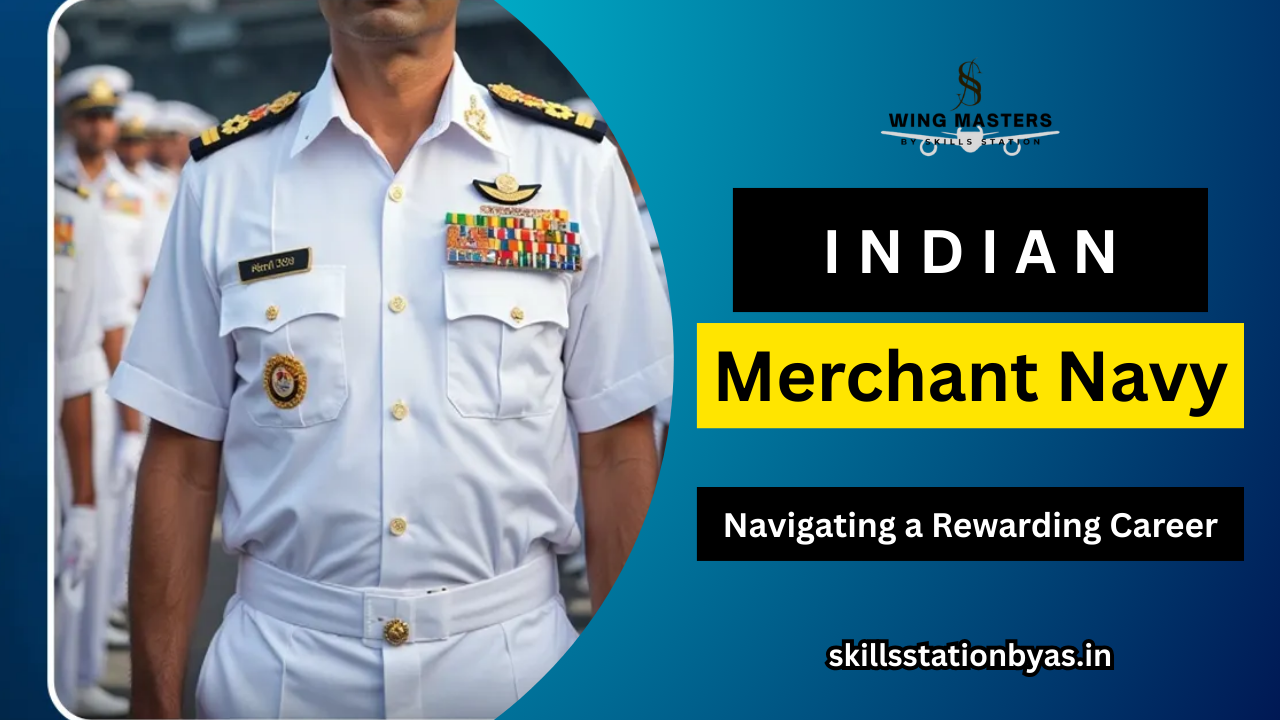
The Indian Merchant Navy offers a dynamic and financially rewarding career for individuals drawn to life at sea. It provides the chance to travel internationally, work in multicultural environments, and earn competitive salaries. This field continues to attract aspiring professionals who seek adventure, stability, and a strong career trajectory.
Located in Dehradun, SkillsStation supports students in launching successful maritime careers. With experienced faculty and industry-aligned training programs, it prepares candidates with both theoretical understanding and practical competence needed to thrive in the Indian Merchant Navy.
Understanding the Indian Merchant Navy
The Indian Merchant Navy serves as the backbone of international commerce, ensuring the steady movement of goods and resources across the globe. This commercial fleet operates cargo vessels, oil tankers, container ships, and passenger liners that connect Indian trade to major international markets. Its role is vital not just to the national economy but also to the global supply chain.
Unlike the Indian Navy, which is dedicated to national defense, the Indian Merchant Navy is a civilian-operated sector focused on transportation and logistics. Career paths in this industry are diverse, offering opportunities for deck officers, marine engineers, electrical officers, and hospitality professionals. Each role contributes to maintaining efficient and safe maritime operations, making the sector both dynamic and essential.
Eligibility Criteria
To embark on a career in the Indian Merchant Navy, candidates must meet specific eligibility requirements:
Educational Qualifications: Completion of 10th or 12th grade with Physics, Chemistry, and Mathematics (PCM) is typically required. For officer-level positions, a minimum of 60% in PCM is often necessary.
Age Limit: Generally, candidates should be between 17.5 to 25 years old. However, this may vary depending on the course and institution.
Medical Fitness: A medical examination is mandatory to ensure candidates meet the physical and mental health standards required for sea service.
How to Join the Merchant Navy
Understanding how to join the Merchant Navy is crucial for aspiring seafarers. The process involves several steps:
Educational Pathways: Depending on your academic background, you can pursue courses like B.Sc. in Nautical Science, B.Tech in Marine Engineering, or Diploma in Nautical Science.
Entrance Examinations: Clearing entrance exams such as the Indian Maritime University Common Entrance Test (IMU-CET) is often a prerequisite for admission into reputed maritime institutes.
Pre-Sea Training: Enrolling in a pre-sea training program at a Directorate General of Shipping (DGS)-approved institute is essential. This training equips candidates with the foundational knowledge and skills required for life at sea.
Sponsorships and Placements: Securing sponsorship from a shipping company can provide job assurance post-training. Many institutes assist students in obtaining these sponsorships.
Continuous Professional Development: The maritime industry values ongoing learning. Pursuing advanced courses and certifications can lead to promotions and specialized roles within the Indian Merchant Navy.

Career Opportunities and Progression
A career in the Indian Merchant Navy offers structured progression:
Deck Department: Starting as a Deck Cadet, one can advance to Third Officer, Second Officer, Chief Officer, and eventually Captain.
Engine Department: Beginning as a Junior Engineer, progression includes roles like Fourth Engineer, Third Engineer, Second Engineer, and Chief Engineer.
Catering Department: Roles include Steward, Cook, and Chief Cook, with opportunities for advancement based on experience and performance.
Each department offers unique responsibilities and challenges, contributing to the overall operation of the vessel.
Inspiring Indian Women Seafarers
The Indian Merchant Navy has increasingly welcomed women who are challenging stereotypes and making their mark in a field long dominated by men. Over the years, more women have shown exceptional courage and determination to join the ranks of maritime professionals, proving their capabilities across various shipboard roles. Their growing presence reflects a positive shift towards inclusivity and equal opportunity within the maritime sector.
Trailblazers like Captain Radhika Menon, the first Indian woman to command a Merchant Navy ship, have become symbols of inspiration for countless young women. Her accomplishments highlight how perseverance, training, and skill can overcome societal and industry barriers. These stories serve as powerful motivation for aspiring female seafarers to chart their path in the dynamic world of maritime careers.

Merchant Navy: Advantages and Disadvantages
Understand the Merchant Navy’s Advantages and Disadvantages before making your decision.
Advantages:
Attractive Salary: Competitive, often tax-free salaries make it financially rewarding.
Travel Opportunities: Exposure to various countries and cultures.
Structured Career Growth: Clear pathways for promotion and skill development.
Disadvantages:
Extended Time at Sea: Long durations away from family and home.
Challenging Work Environment: Demanding physical and mental conditions.
Limited Social Life: Isolation during voyages can impact personal relationships.
Understanding these factors is essential for making an informed career choice.
Conclusion
Embarking on a career in the Indian Merchant Navy offers a unique blend of adventure, responsibility, and financial stability. While the journey requires dedication and resilience, the rewards are substantial for those committed to the maritime profession.
For aspirants seeking quality training and guidance, SkillsStation stands out as a reputable institution. Recognized as the best navy academy in Dehradun, SkillsStation provides comprehensive programs tailored to equip students with the skills and knowledge necessary for a successful maritime career.
